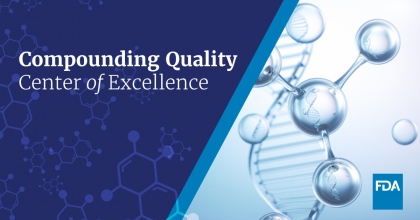Human Drug Compounding
Drug Compounding
Compounding is generally a practice in which a licensed pharmacist, a licensed physician or, in the case of an outsourcing facility, a person under the supervision of a licensed pharmacist, combines, mixes or alters ingredients of a drug to create a medication tailored to the needs of an individual patient.
Compounded drugs are not FDA approved, which means the agency does not verify their safety, effectiveness or quality before they are marketed. Although compounded drugs can serve an important medical need for certain patients, they also may pose a risk to patients.
FDA’s compounding program aims to protect patients from poor-quality compounded drugs, while preserving access to lawfully-marketed compounded drugs for patients who have a medical need for them.
Email us: compounding@fda.hhs.gov
Sign up for compounding and Compounding Quality Center of Excellence emails
Quick Links

Find information on FDA’s compounding oversight and compliance actions

Get the latest information on policies and rules related to drug compounding

Understand risks related to compounded drugs

Get involved with the Compounding Quality Center of Excellence

Find the list of registered outsourcing facilities

